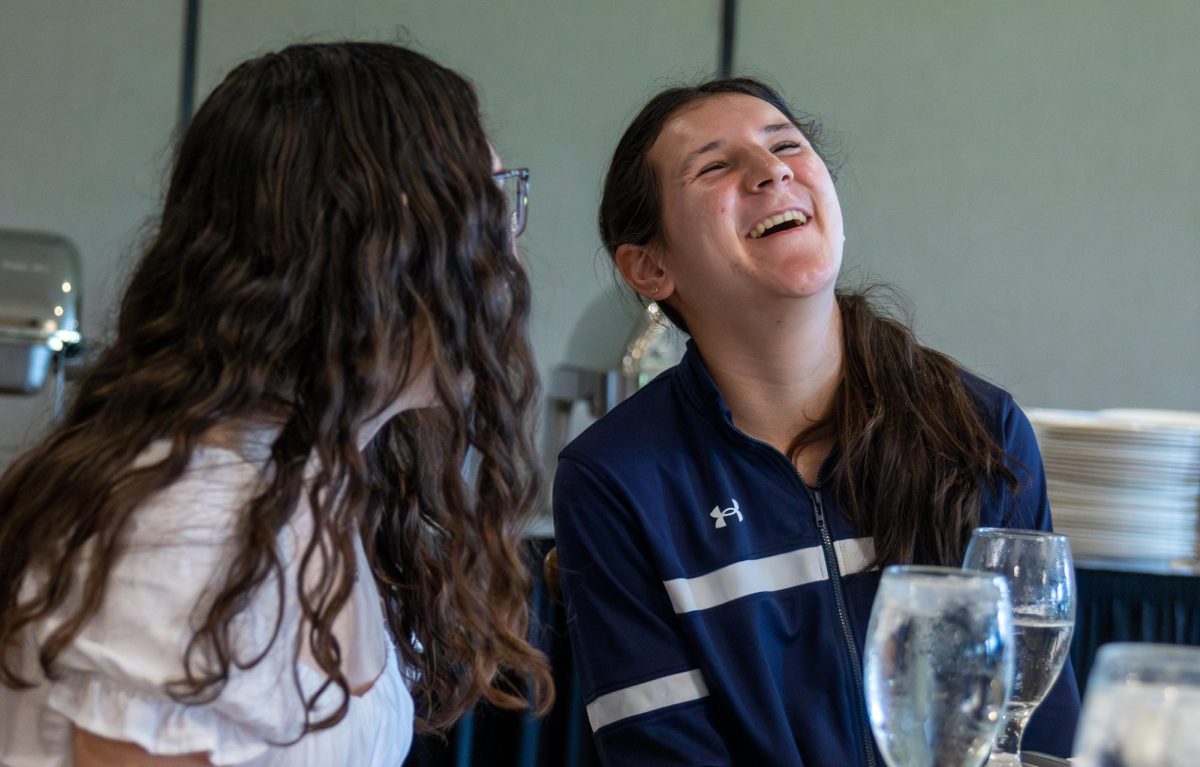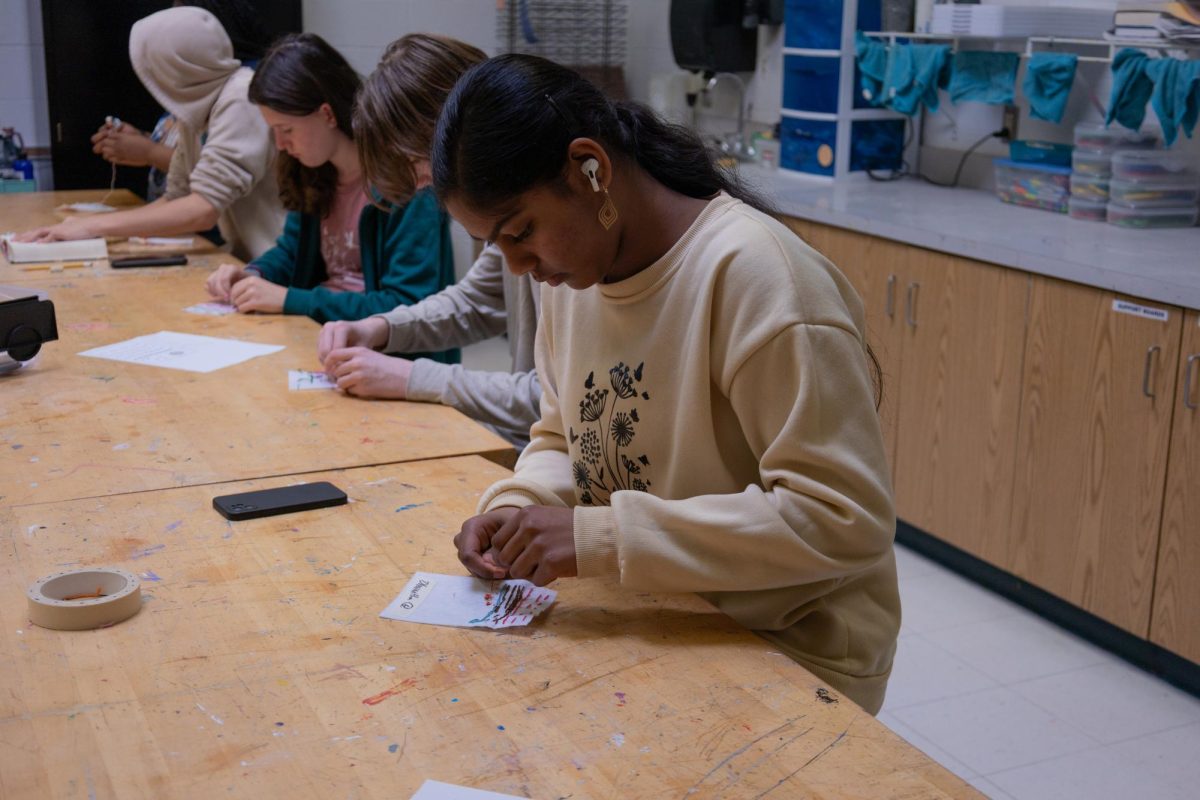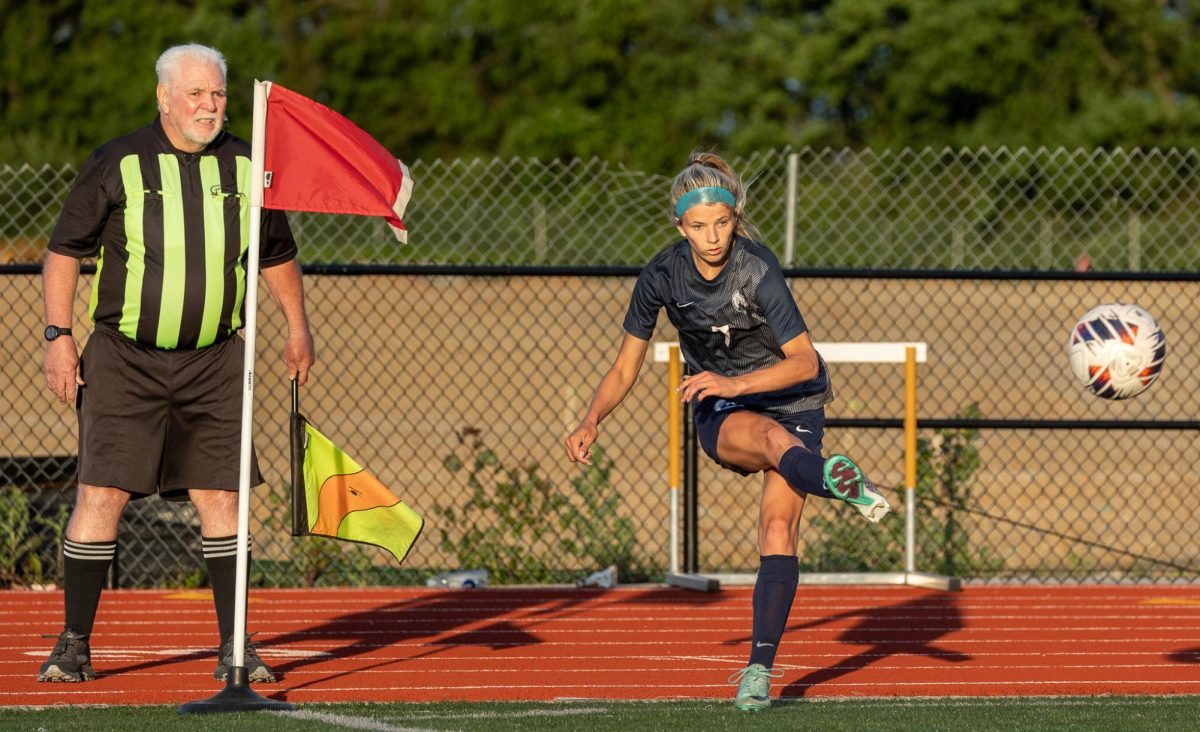Freshman Caleb Calvin sits scrolling on his phone in his Spanish II class after finishing his assignments for the day. Although Calvin likes the class, he isn’t sure if he has any interest in pursuing higher levels of Spanish in high school. Many students share these thoughts; unfortunately, foreign language classes at FHC are suffering in response.
The popularity of foreign language classes has seen a sharp downturn over the last few years. Many students take the two years of language classes needed for most colleges and then drop out in favor of other classes. Although this is a popular move for many students, language teachers don’t always believe that it is the right one. Spanish teacher Caitlyn Crain feels that the third level, directly after most students drop, is when the language comes together for the students that continue.
“It’s hard for me to see [students stop] because level three is when everything starts to fit together and things start to make more sense,” Señora Crain said. “Level two is a lot of grammar and a lot of memorizing. But level three is where magic happens. People start to speak more and understand more.”
French teacher Amy Roznos has also experienced this drop-off preceding level three. She too is often disappointed by students quitting French classes, especially when they show a lot of potential in levels one and two.
“Levels one and two are the foundation. Then a lot of students just stop and I’m like, ‘No, you could go so far,’” Madame Roznos said. “This is a skill that will never go away. It’s not just learning facts. It’s learning how to communicate and nobody can ever take that away, it just feels so important. I can see potential in students and think that they would be so good at this. And then they decide to drop, which is their choice. But I wish they’d make another choice.”
Junior Cassie Durbin is a level four French student who hopes that enough students will stick with the class for there to be a French five class next year. However, she understands that the decision to continue the class comes at the expense of another course. “It might not fit in someone’s schedule if they want to take more AP classes to get ahead in college. It just [depends on] what fits for their life,” Durbin said. “If they really want to learn the language or enjoy learning about the culture they should stay, but if they need that space for biomedical classes or other course related classes, it happens.”
Learning a language is a difficult task, which Madame Roznos believes contributes to the number of students who decide to stop taking foreign language courses. Students often grow impatient with slow progress without realizing they’re actually on pace.
“Students don’t feel like they’re doing enough fast enough. They end level two and they think that [they] don’t know how to say anything,” Madame Roznos said. “But I know that you’re only supposed to be able to speak in present tense and still be making mistakes. That’s exactly where you’re supposed to be.”
Both teachers understand that a foreign language class doesn’t always fit into a student’s schedule after their freshman and sophomore years. However, they also both agree that continuing to take Spanish or French would benefit students more than they know.
“I have never met an adult in my life that said, ‘I’m glad I stopped taking Spanish class,’ or, ‘I’m glad I stopped taking French class,’” Madame Roznos said. “All of them say ‘Man, I wish I would have kept going because it’d be so great if I knew how to speak [another] language.’”
Even beyond the ability to speak a language, the culture that is taught primarily in levels three through five is important for students as they move through life.
“We live in a global society and we’re more connected than ever,” Señora Crain said. “It’s important to have a knowledge of how another culture operates in order to be more empathetic and to be more engaging with other people that are different. It’s also important for people to understand that just because something’s different doesn’t mean that it’s bad or weird, it’s just different.”
One of the easiest ways to measure the decreased interest in upper-level foreign language classes is through the applicants for the Seal of Biliteracy, a test that measures a student’s proficiency in a foreign language and understanding of another culture.
“The Seal of Biliteracy is [great] because it goes on your high school transcript and you can tell future employers [that you] took a state standardized test that says you are a proficient speaker of whatever language,” Madame Roznos said. “Automatically, that’s putting you ahead of other people that are looking at these jobs.”
In years past, there have been around 45 students who applied for the Seal of Biliteracy at FHC. This year, only 17 have applied, according to Señora Crain. Although the decreased interest in the Seal of Biliteracy Test is disappointing to the teachers, they are hopeful that they will see an increase in years to come, both in the testing numbers and the general interest in the classes.
“All of the teachers are working on building these numbers back up and showing students why this class is worthwhile,” Madame Roznos said. “We’re trying to work more culture into it, because that’s the fun part of language classes. We have to teach vocab and grammar and stuff too, but we’re trying to add more culture.”
Durbin is one of the students who likes learning about the culture in addition to the language.
“I’ve learned how to appreciate culture. Not just [in] France, but [in] all the French-speaking countries,” Durbin said. “I didn’t even know about Rwanda and then we did an assignment about it. I didn’t even know this country existed two days ago, and now I know all this stuff about it. It’s a new experience.”
Some people believe that the value in learning a foreign language is decreasing as technology improves and artificial intelligence advances. However, Señora Crain believes that the value of a face-to-face conversation between two people can never be replaced by a computer.
“We’re still going to [be] humans communicating with one another and having human interactions. I mean, AI is great, but we have our own experiences. We have backgrounds that a computer will never have,” Señora Crain said. “I think that it’s important to continue to learn languages because we have to communicate with each other. Computers are never going to communicate as well as humans. Period.”















